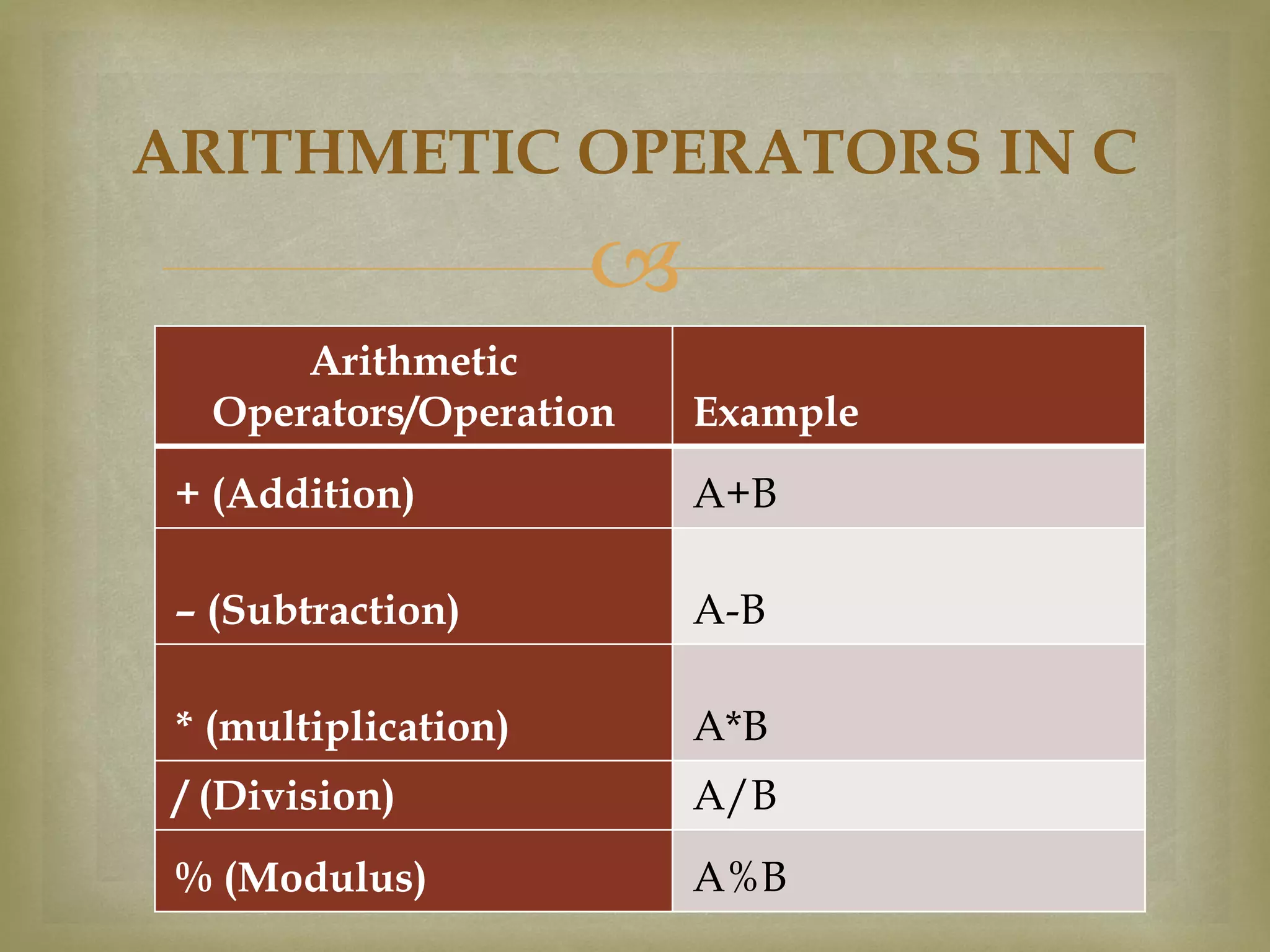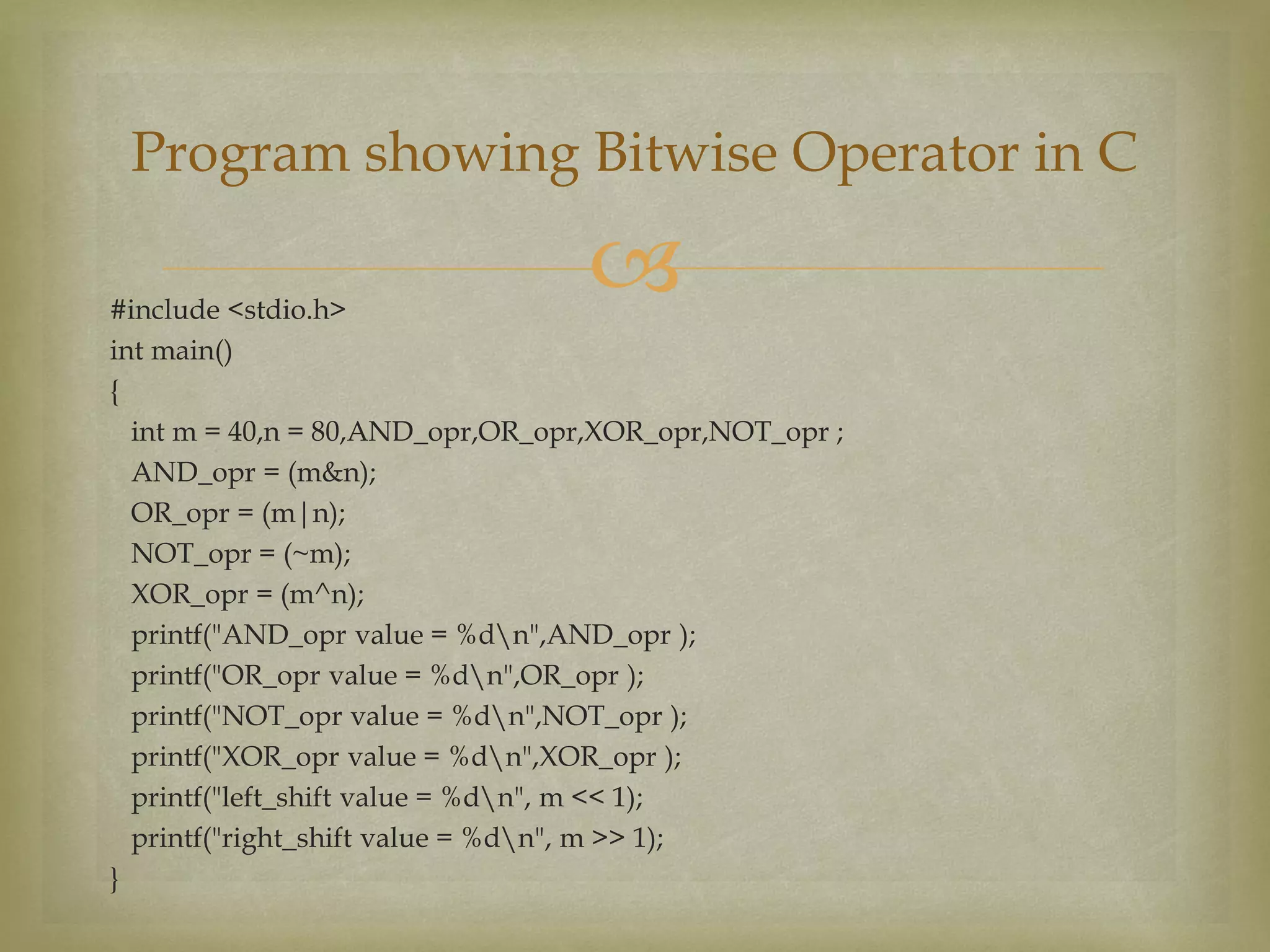The document discusses the different types of operators in C programming language including arithmetic, assignment, relational, logical, bitwise, conditional (ternary), and increment/decrement operators. It provides examples of how each operator is used in C code and what operation they perform on variables and values.



















